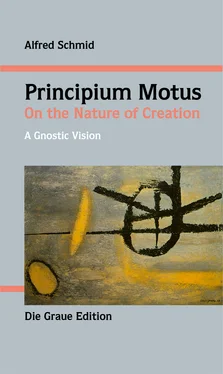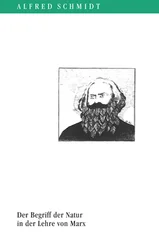It is certainly true that modern theoretical physics, in all its forms of development, constitutes an outstanding intellectual system the likes of which has never existed before and that in the way it creates its standards closely follows experimental facts. Seen from this angle, the “physical method” is certainly irreplaceable. We must, however, judge as inappropriate its claim that it can understand everything in the world. The success of physics on the material level, which is evident particularly in the largely complete reproduction of experimental results, no doubt suggests that there is indeed nothing of substance besides the mathematically formulated laws of physics. Accordingly, it is precisely those elements that are believed to hold the world together at the core; here, metaphysical elements have no right to exist. That, however, is careless! In particular, it denies that modern physics is not free from transcendence or metaphysics either.
Theoretical physics is certainly free of mystical entities in whose real existence people in pre-scientific times still used to believe more or less firmly. In those days it was by no means absurd to be convinced that what was going on in field and forest was brought about by gods, demi-gods, capricious fairies, or other mystical “persons”. Of such mystic entities modern physics could, as I said, easily dispose. However, with its conceptualizations, it has by no means detached itself from transcendence and metaphysics. On the contrary, some basic elements and assertions can, as a matter of principle, not be measured. Take for instance the concept of the field. Modern physics expresses almost everything as a field property; the vacuum is positively stuffed with fields. With physical means of observation, however, we do not, due to the field’s infinite value range, even get close to experiencing fields in their entirety, because once we have experimentally identified a particular set of values within an infinite range (and that is all we can do), there is still an infinite number of field elements left.
Alfred Schmid makes a fresh start. He does not graft physics onto metaphysics, but asserts that everything has its origin in the transcendental. For him, metaphysics is not an accessory and a leisure activity that has no place in our professional dealings with the world. Rather, Alfred Schmid puts the transcendental at the core of everything that happens in the cosmos, resulting also in the laws governing the material domain.
Alfred Schmid argues as follows: everything in the world, humans, animals, plants, minerals, and even elementary particles, do not act because they are causally conditioned to do so, but all those things act, as it were, of their own accord. Every part of Creation has the ability to act. Everything that exists is therefore elevated to the status of the “persona”, and there is no causally produced passive activity as the pull and push forces of Newtonian mechanics would suggest. According to Alfred Schmid, self-originated action is a primordial phenomenon, that is to say, the most fundamental thing in existence.
This means that every outside correlates with an immanent inside, the transcendental, which makes this outside possible in the first place, but which man can neither experience like a material object nor explain, even though we can notice, observe, and also influence its effects. This inside that is immanently at work in everything that exists in the world Alfred Schmid calls principium motus; according to him this is ultimately what holds the world together at the core.
In Alfred Schmid ’s view this insight is generated by “gnostic thinking” and requires faith. This faith, however, is not simply a belief in something, but it is a knowing belief in something. Since what we are dealing with here are absolute, ultimate truths, it must be a faith with no conditions and one that is not supported by reason. Yet standard physics does not deduce its laws exclusively through logical thinking either. Rather, it always starts with a specific image that is posited and that results from a “higher insight”. Theoretical physics is here tangent to Schmid’s worldview. Schmid, however, has other and new areas of emphasis. Of this, the present seminal monograph is a convincing demonstration.
Karlsruhe, February 2007
Wolfram Schommers
PROLOGUE
This work expands upon my Marvel of Light 1. Expanding upon something is different from continuing it. When you continue you can interrupt your train of thought more or less at random, whereas an expansion reflects incisions that attest to new breakthroughs in the author’s nature.
Such breakthroughs always occur in thrusts. This is why we also call them gnostic circles, because they resemble the circular ripples that a stone creates when thrown into the water.
Thus, it was neither by chance nor by intention that some questions in my Marvel of Light remained unanswered. Rather, the reason was that I had not reached the required level of knowledge. The time for answering them had not yet come in me, the required level of knowledge had not matured yet.
In some letters that I received at the time in regard to the Marvel of Light, I was repeatedly asked why I had not divided the work into a scientific and a philosophical part, since in its present form it was too philosophical for the scientist and too scientific for the philosopher. Such a division would have made it easier for the reader to find what is of interest to them. I can certainly understand why one would want this, but I have to say that in that case I would never have been able to write the book because scientific correctness and philosophical truths are different perspectives that should supplement each other, as I have tried to. However, genetic insight, as I understand it, is not merely a body of knowledge. It is not a specialized knowledge. Rather, it ultimately seeks to find the keys that unlock in their depth the preeminent spiritual and religious questions that concern us. What I have written about it, therefore, is not just a scientific communication, in that what had occurred previously had taken hold of not just the author’s thinking but rather beyond that also of his entire being, which is not much different from what happens when love takes hold of us.
*
Gnosis is the blossom of the tree of knowledge. Even though it bears fruit in its time, it is not an end in itself. It seems to be without purpose.
What is meant to delight us is not knowledge as such, understood as the result of an activity, but the very process of understanding. Which is always a gift!
Understanding is one of the great gifts of humankind. It is akin to love. What it makes us experience fills us with a primordial joy, which, just as the encounter with the angel, contains both delight and terror.
Primordial joy is not taken in through the senses, but through the soul. If such primordial joy did not exist, our humanity would merit neither gratitude nor praise, since one single grain of it is worth one hundred bushels of suffering.
Its only sources are understanding, love, and action rooted in virtue – logos, eros, and arête. Any other pleasure is just vain junk, the preferred attire of the dead-born. Without primordial joy there is only the endless repetition of our expulsion from the Garden of Delight, because all other pleasures do but deceive us and give us no true comfort. They are like the drops of jaded rain flowing into the sea of oblivion or the pool of regret. “Yet all (primordial) joy wants eternity, wants deep, wants deep eternity!” 2…
When the finger of God touched the extended hand of the first human, he was overcome by the rapture of that primordial joy, and he saw the Creation with God’s eyes, just as if he himself had been responsible for it. And we, too, experience in this – gnostic – understanding our secret part in the act of creation.
Читать дальше












